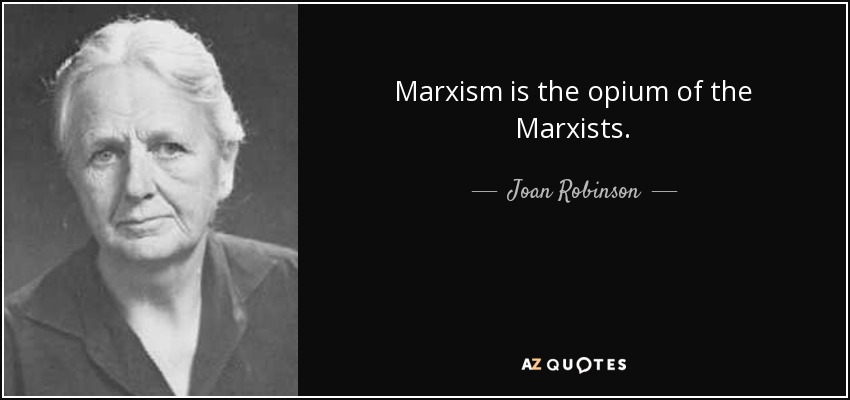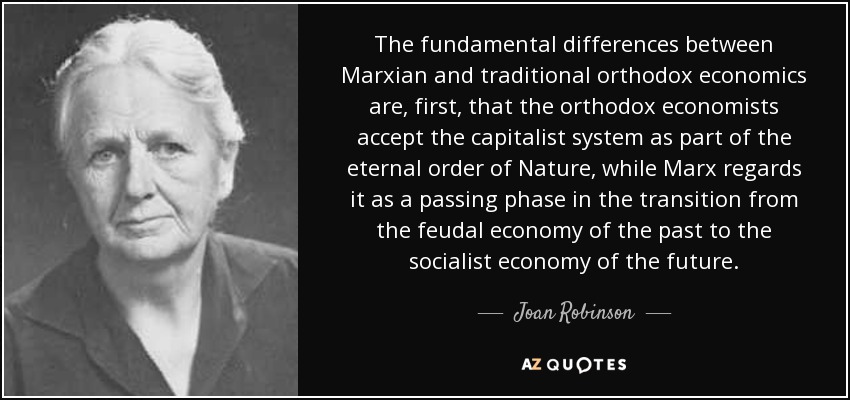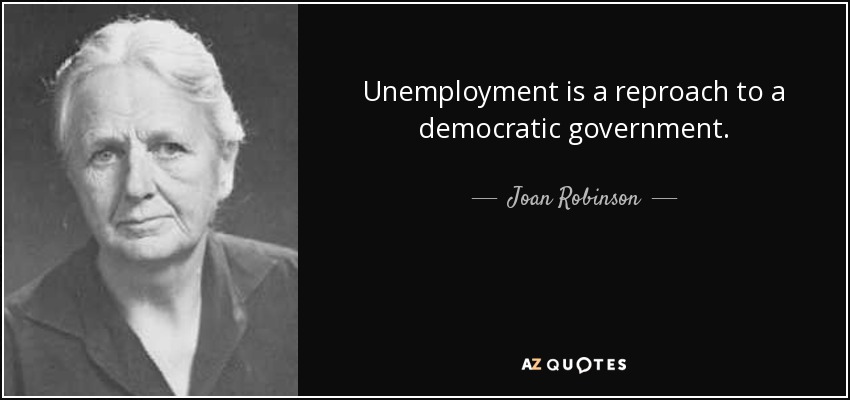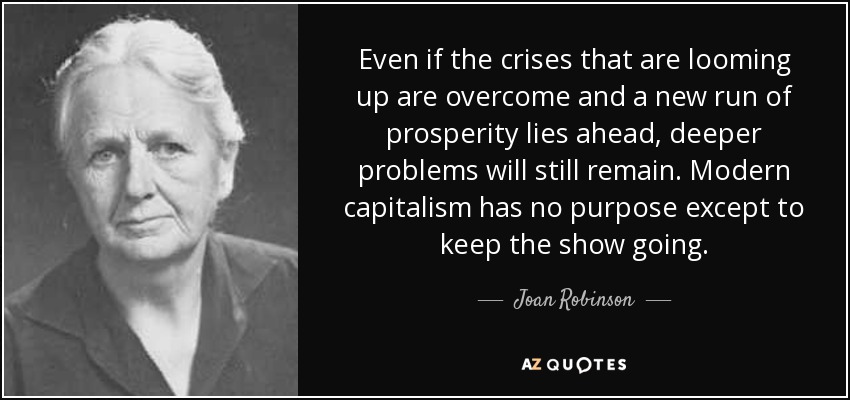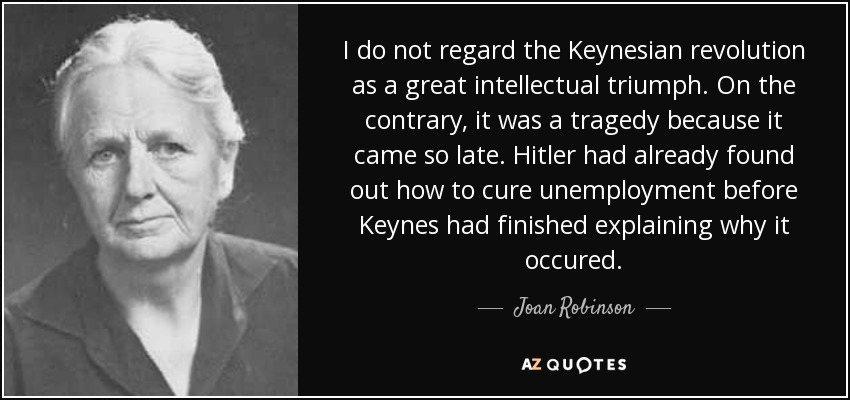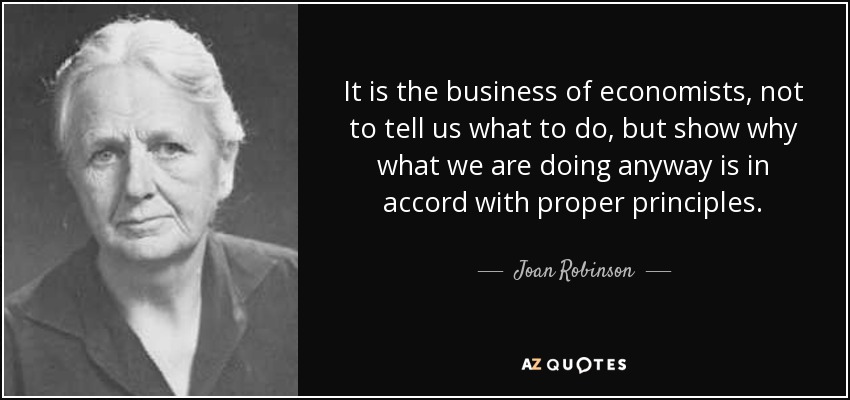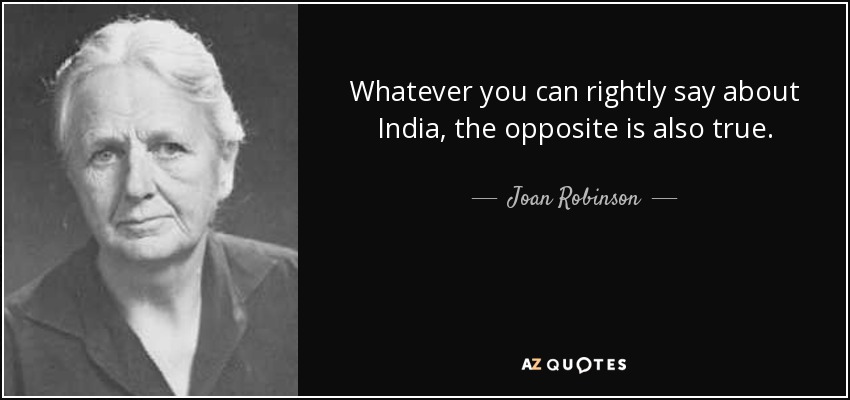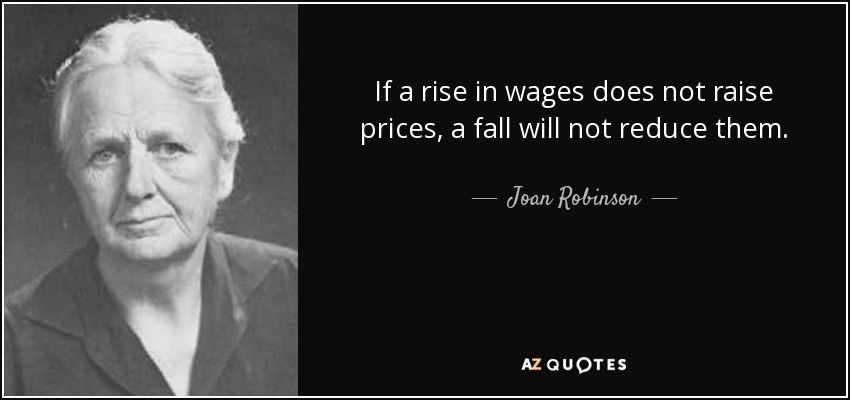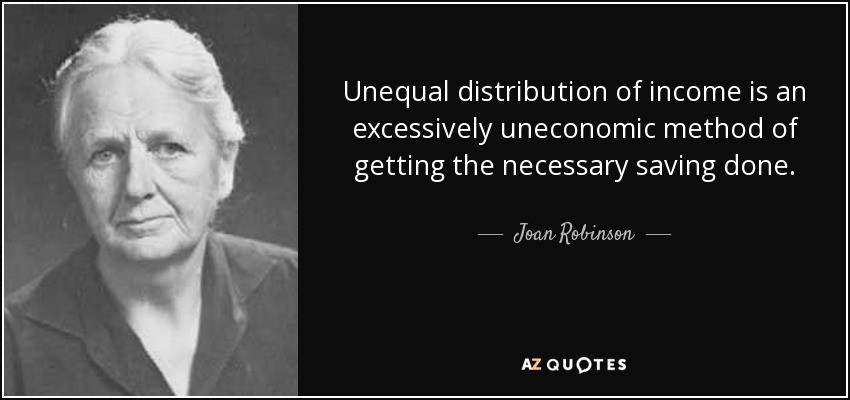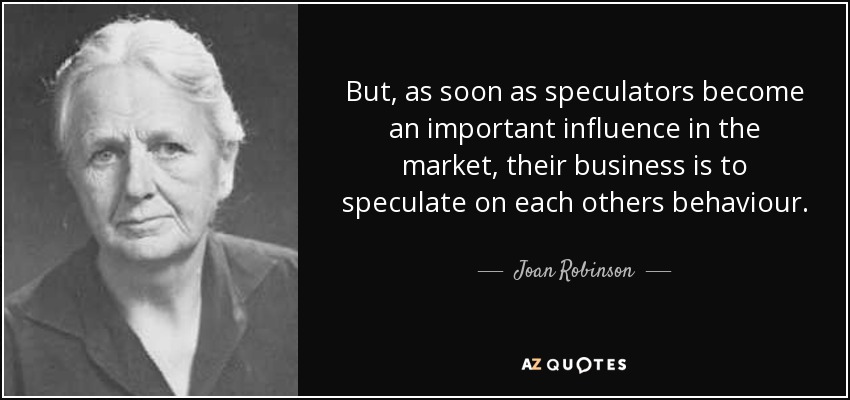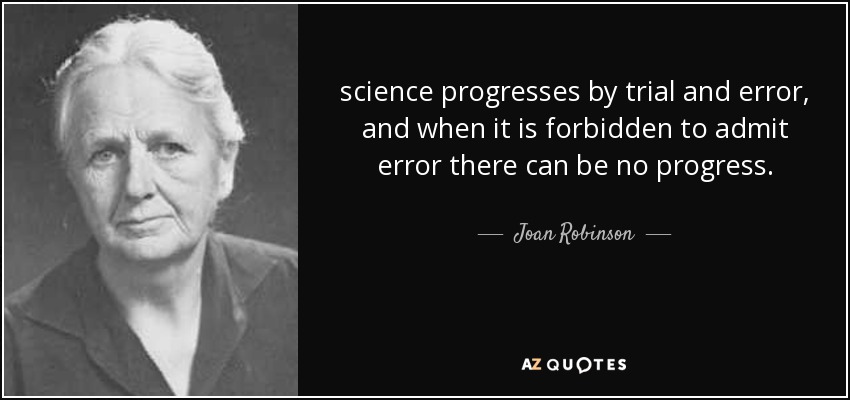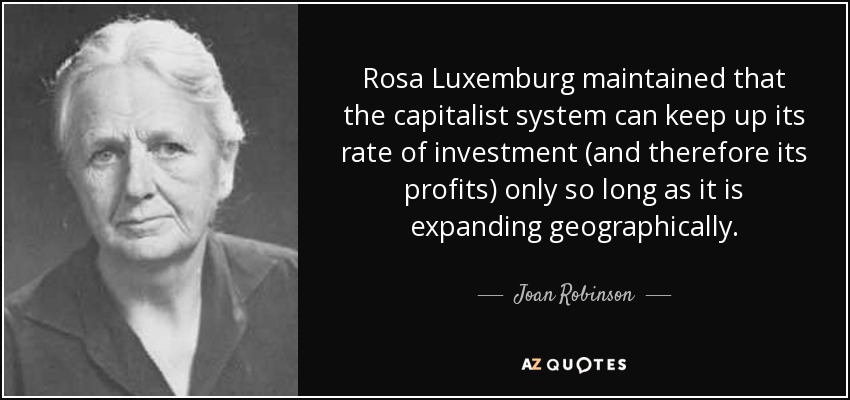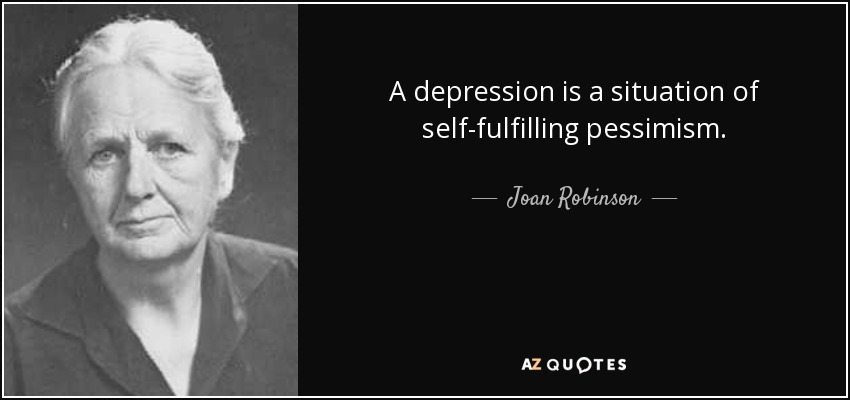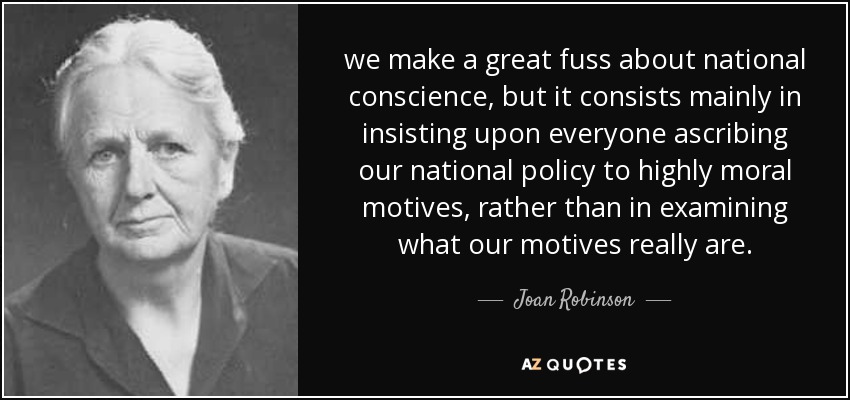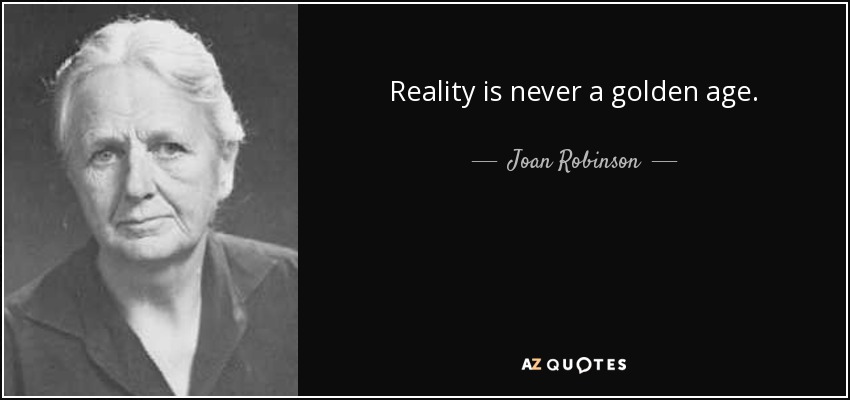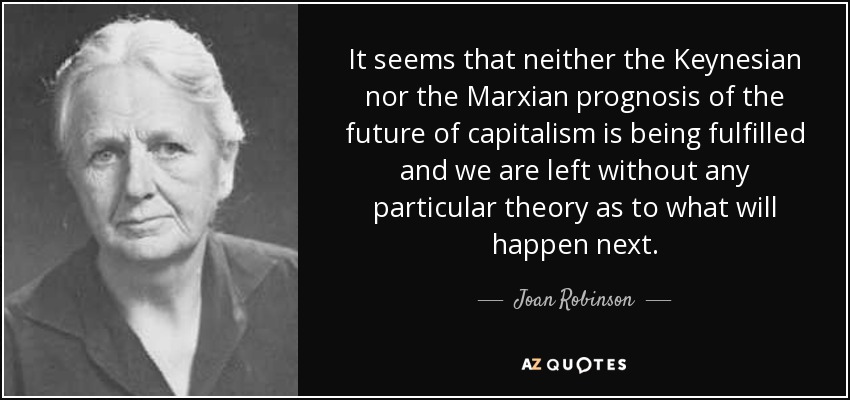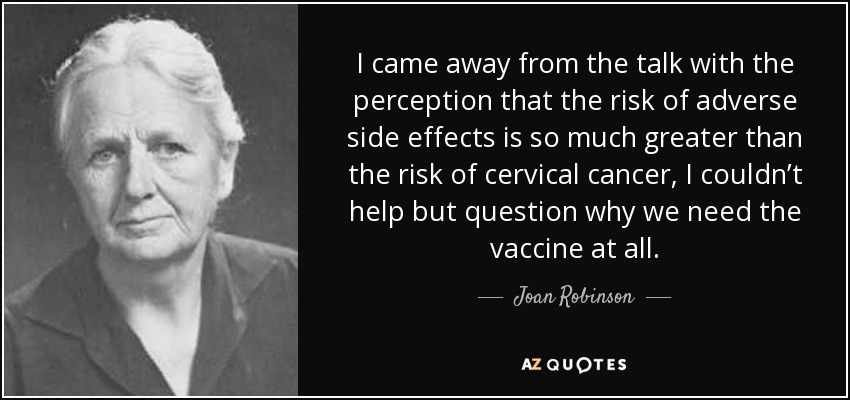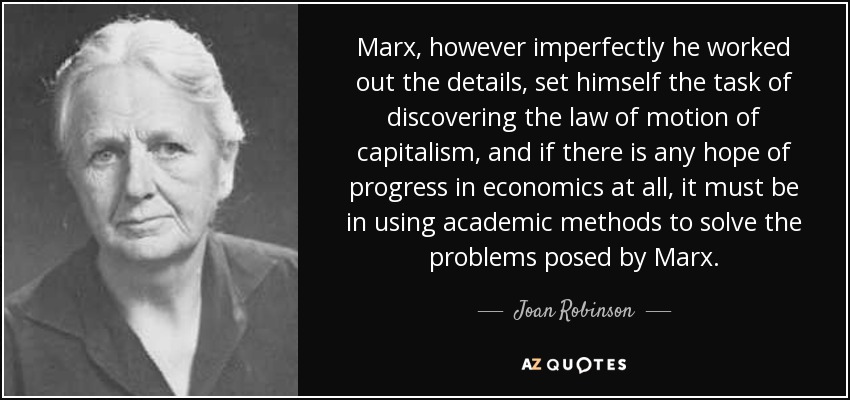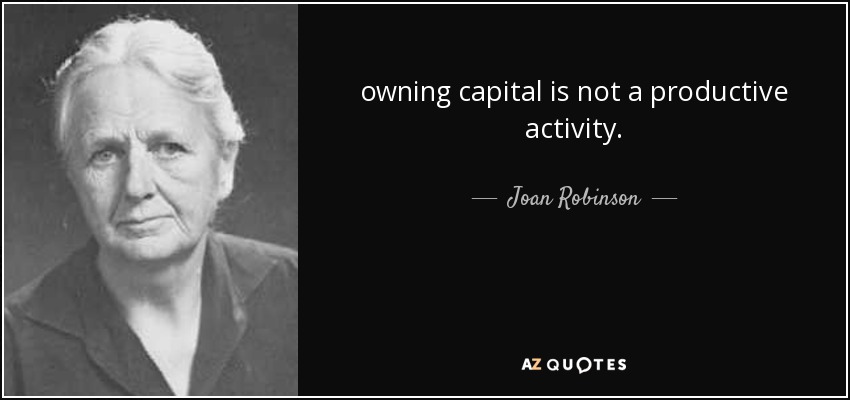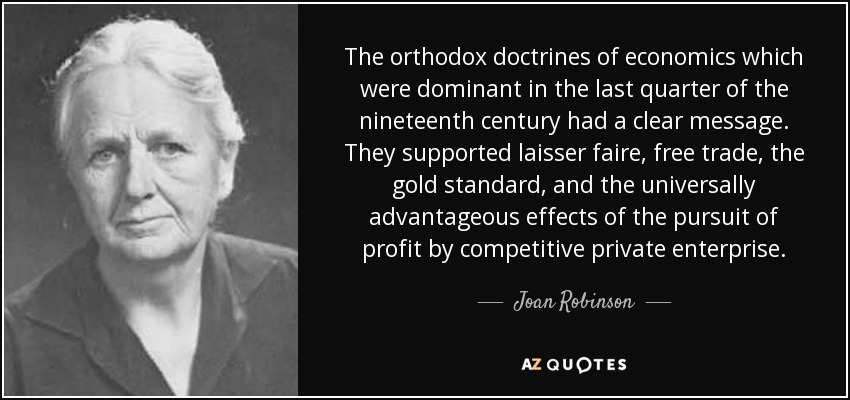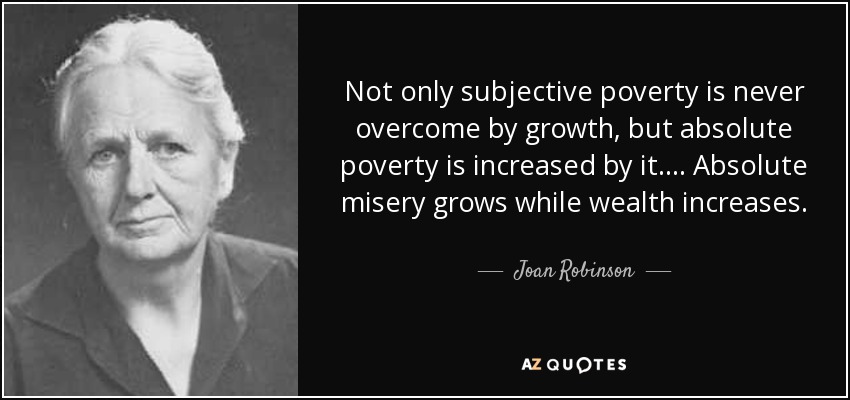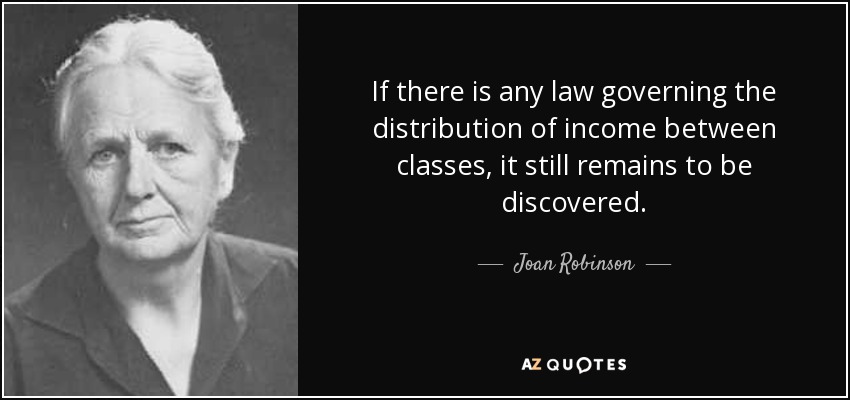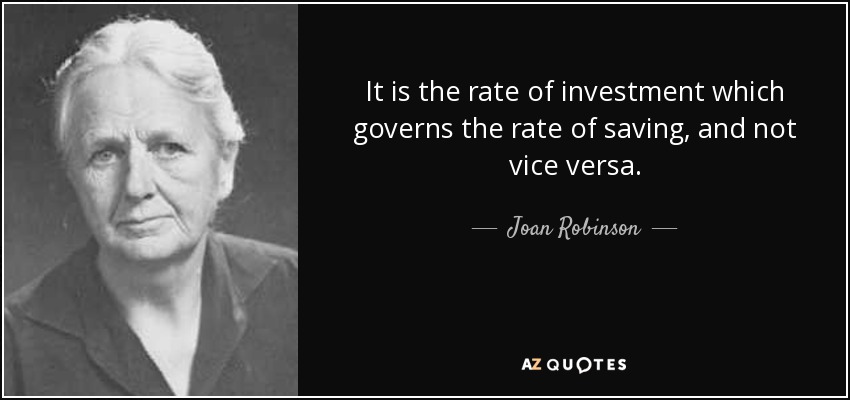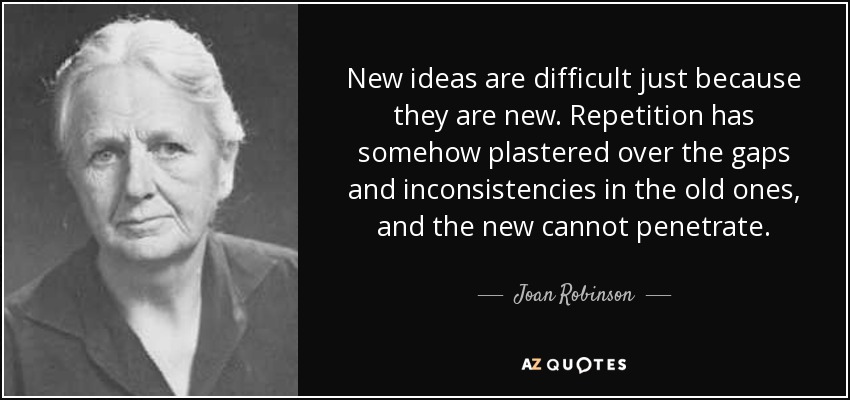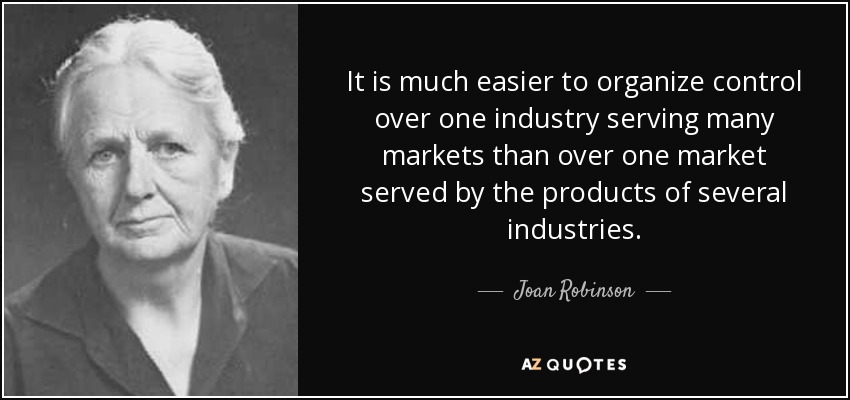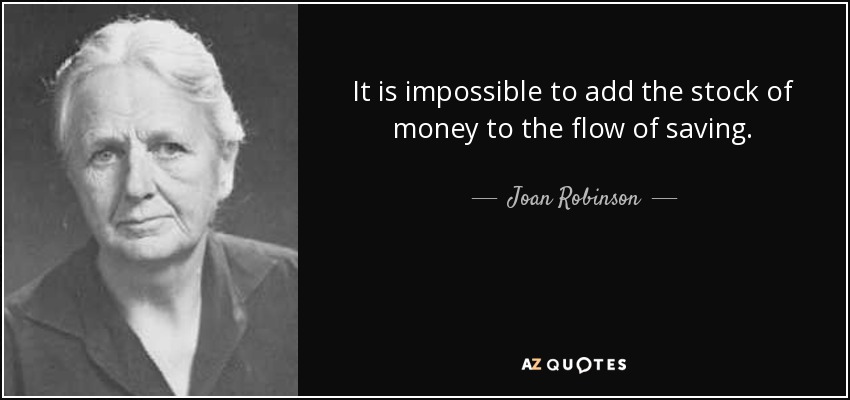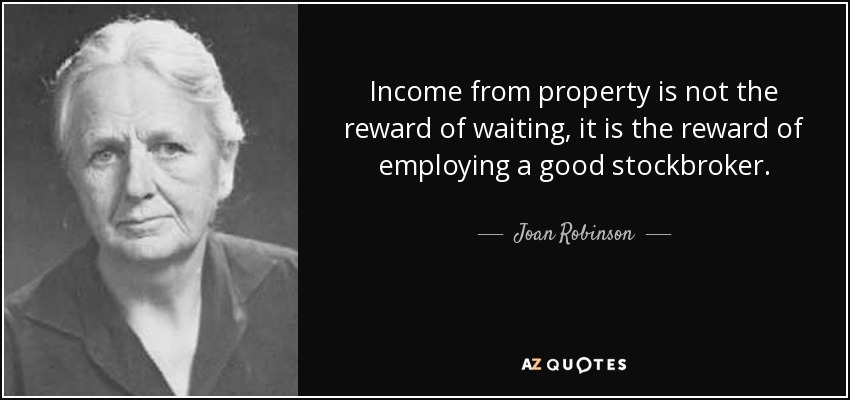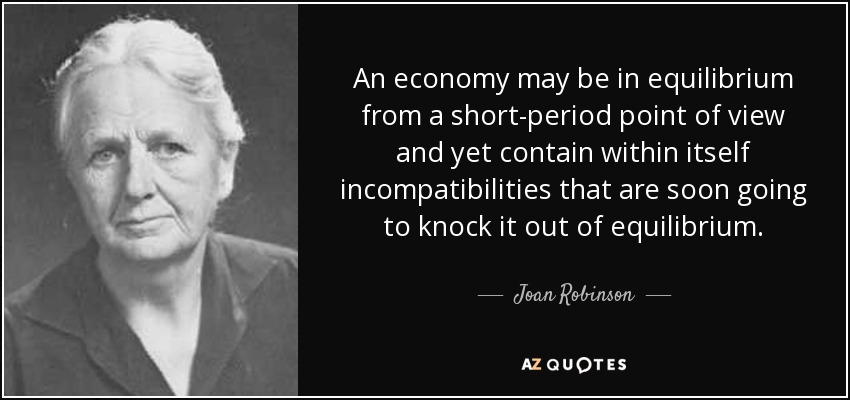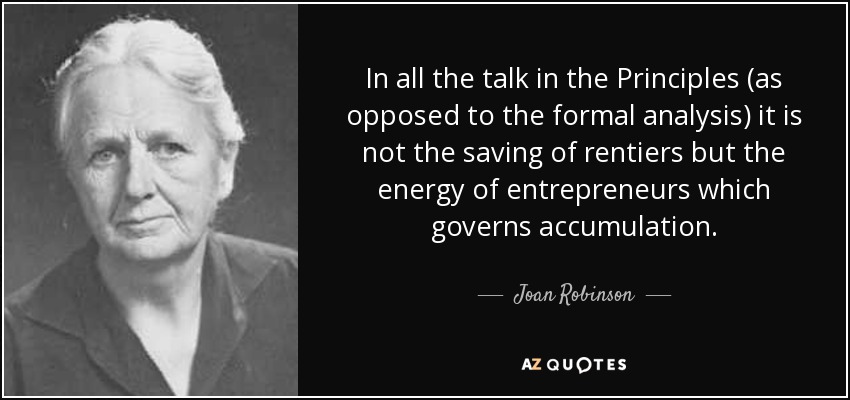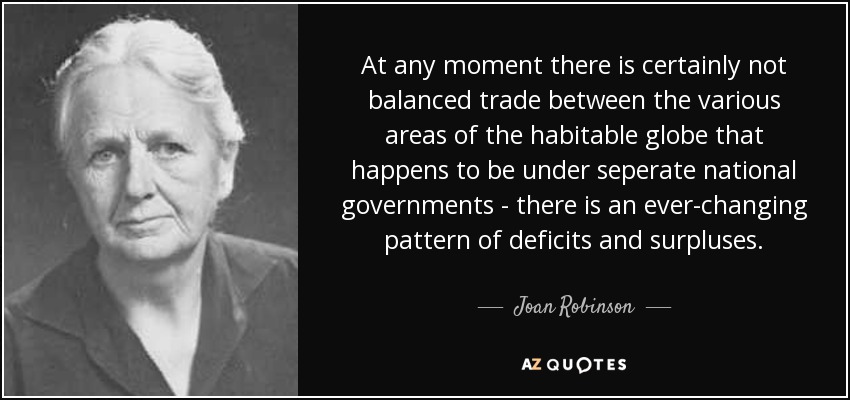Joan Robinson (née Maurice), who was born on this day in 1903, in Surrey, England, was a Cambridge-educated economist. Her work in this field has led her to be regarded as a key figure of so-called 'Post-Keynesian school' of thought. However, she is also noted for having devoted considerable time to the study of Karl Marx and his contribution to the development of economic theory – e.g. An Essay on Marxian Economics (1942). Such works are even said to have helped to revive debate on this aspect of Marx's legacy.
She visited many countries – including the Soviet Union, China, Korea, India – during her lifetime. She expressed particular interest in the experiences of 'the developing world' and those countries emerging from the shackles of colonialism in the period that followed the end of World War II.
These excerpts from her work and public statements of her views, have been chosen mainly for presentational purposes and their quotability. They are not put forward as representing any kind of summation or broad assessment but, do help to focus on some of key challenges that practitioners of the study of modern-day political economy needs to address.
She visited many countries – including the Soviet Union, China, Korea, India – during her lifetime. She expressed particular interest in the experiences of 'the developing world' and those countries emerging from the shackles of colonialism in the period that followed the end of World War II.
These excerpts from her work and public statements of her views, have been chosen mainly for presentational purposes and their quotability. They are not put forward as representing any kind of summation or broad assessment but, do help to focus on some of key challenges that practitioners of the study of modern-day political economy needs to address.
"Capitalism with near-full employment was an impressive spectacle. But a growth in wealth is not at all the same thing as reducing poverty. A universal paean was raised in praise of growth. Growth was going to solve all problems. No need to bother about poverty. Growth will lift up the bottom and poverty will disappear without any need to pay attention to it. The economists, who should have known better, fell in with the same cry." ~ Joan Robinson
"It is a popular error that bureaucracy is less flexible than private enterprise. It may be so in detail, but when large scale adaptations have to be made, central control is far more flexible. It may take two months to get an answer to a letter from a government department, but it takes twenty years for an industry under private enterprise to readjust itself to a fall in demand." ~ Joan Robinson

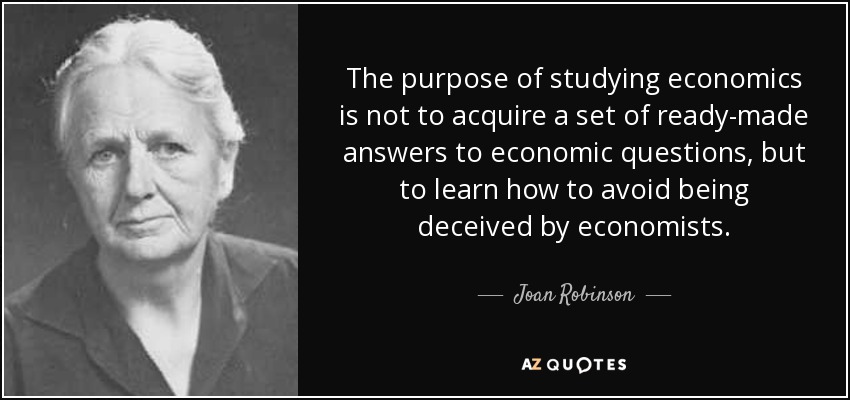
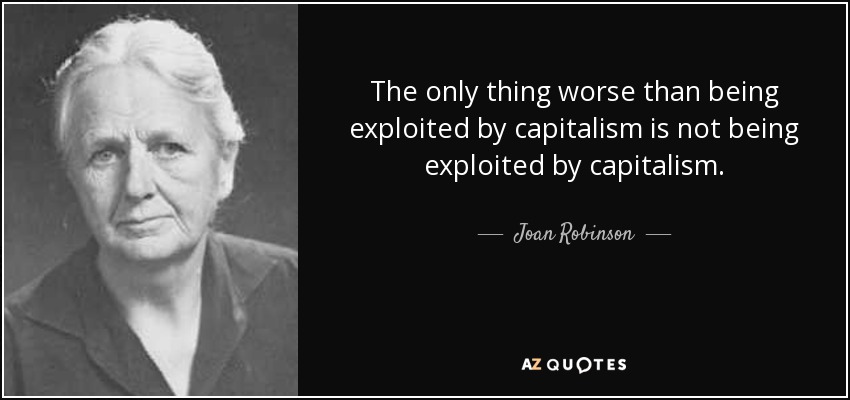
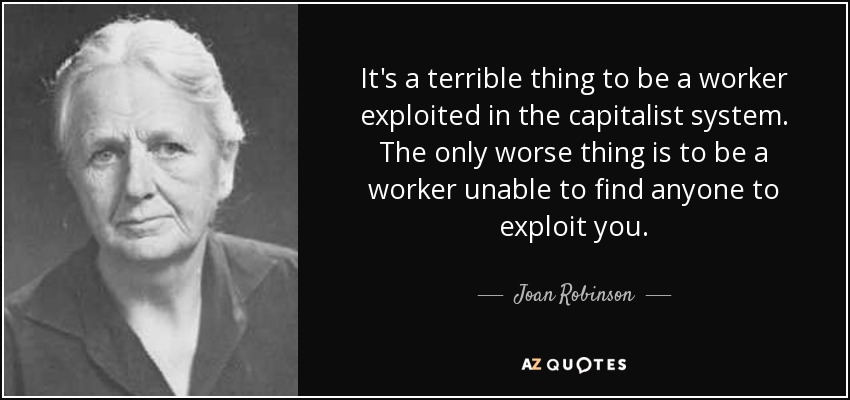
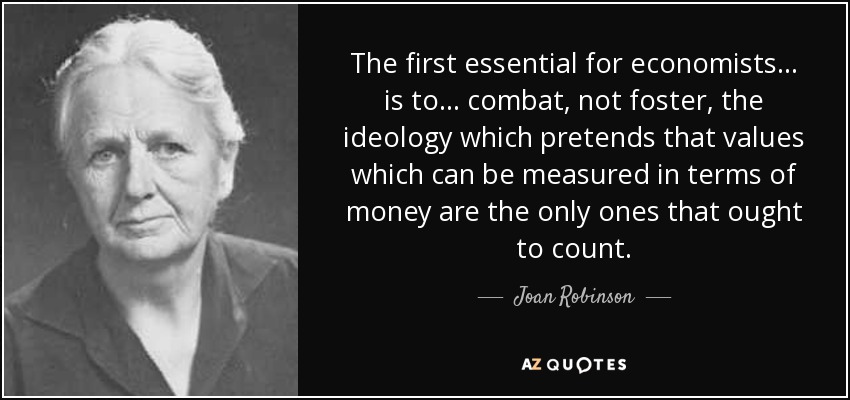
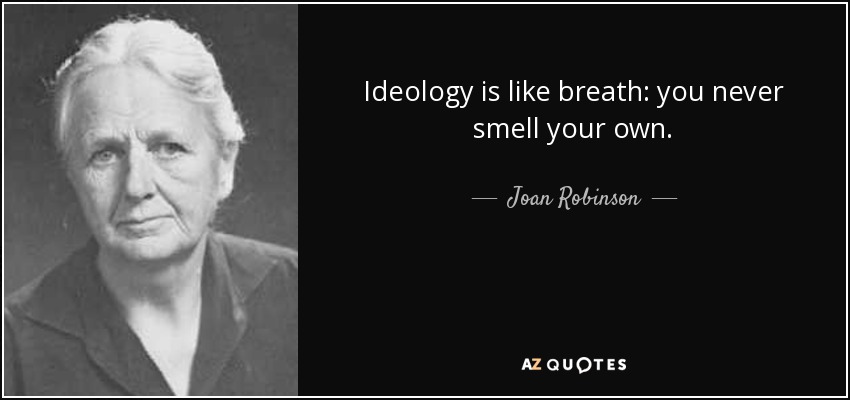
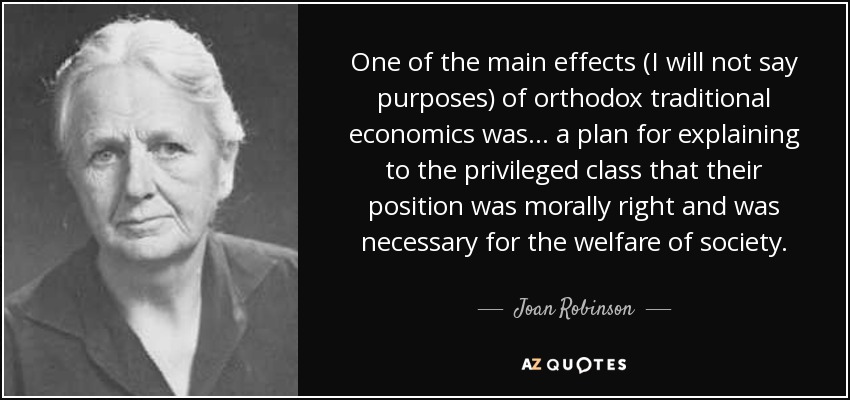
![The very nature of economics is rooted in nationalism. ... It [was] developed ... in the hope of throwing light upon questions of policy. But policy means nothing unless there is an authority to carry it out, and authorities are national. - Joan Robinson](https://www.azquotes.com/picture-quotes/quote-the-very-nature-of-economics-is-rooted-in-nationalism-it-was-developed-in-the-hope-of-joan-robinson-117-36-93.jpg)
